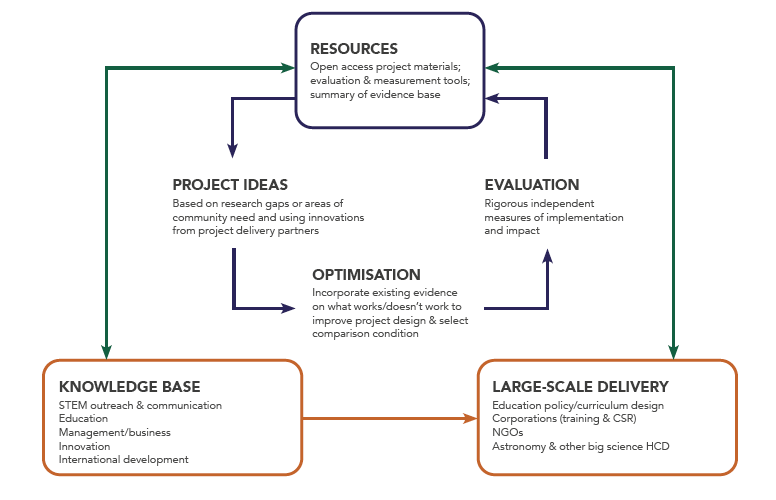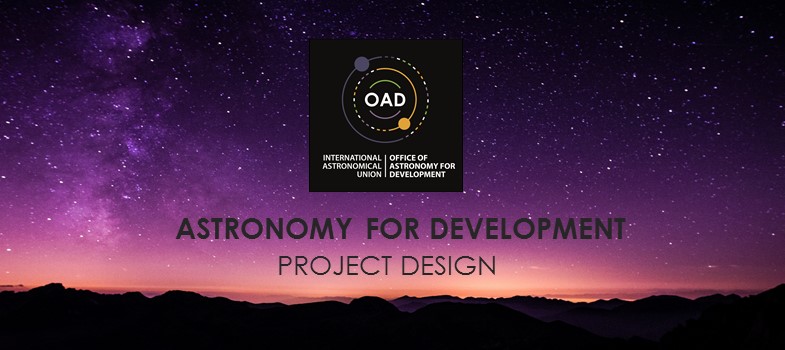Overview of the Impact Cycle and how to apply the cycle to a project
We believe that for astronomy-for-development activities to be effective, a scientific approach is needed. Evidence-informed project design, as explained in the previous sections, ensures that projects build on past lessons, thereby reducing the risk of negative unintended consequences and increasing the likelihoods of positive cost-effective impacts.

The OAD Impact Cycle aims to enhance the OAD’s project design, selection and delivery systems to determine what works and, importantly, what doesn’t work. By doing this, the OAD can develop a library of evidence on best practice and ensure a positive feedback loop for projects.
At Project Ideas (stage 1 of proposal) stage in the diagram, the OAD provides guidelines on previous experience and existing research to allow proposers to focus their ideas and build on what has been done before. This is followed by Optimisation process, in which selected projects are optimised by the proposers, that is, the theoretical assumptions and target outcomes for the project are made explicit, the project incorporates best practice and evaluation design.
Where possible, the Evaluation stage should apply experimental (i.e. scientific) research designs to obtain valid and publishable measures of impacts, while keeping the implementation process as unbureaucratic as possible for the project leaders. As you can see in the diagram, the Resources are a continuously updated library of best practices, that will capture what we learn in previous steps. These best practices inform the development of new evidence-based projects, thereby feeding back into the Project Ideas stage to create a positive feedback loop.
Essentially, the Impact Cycle will feed into a global Knowledge Base both through academic publications on evaluated projects and by providing data to serve the STEM education, outreach, evaluation and development communities. Contributions to the global evidence base on science for development, education, outreach and human capital development provide a platform for ensuring that innovative, high-impact projects inform practice on a larger scale. The impact cycle thus generates the high quality evidence needed by policymakers and donors designing large-scale education and the human capital development interventions.
See the following link for more information on OAD Impact Cyle http://www.astro4dev.org/funded-projects/impact-cycle/.